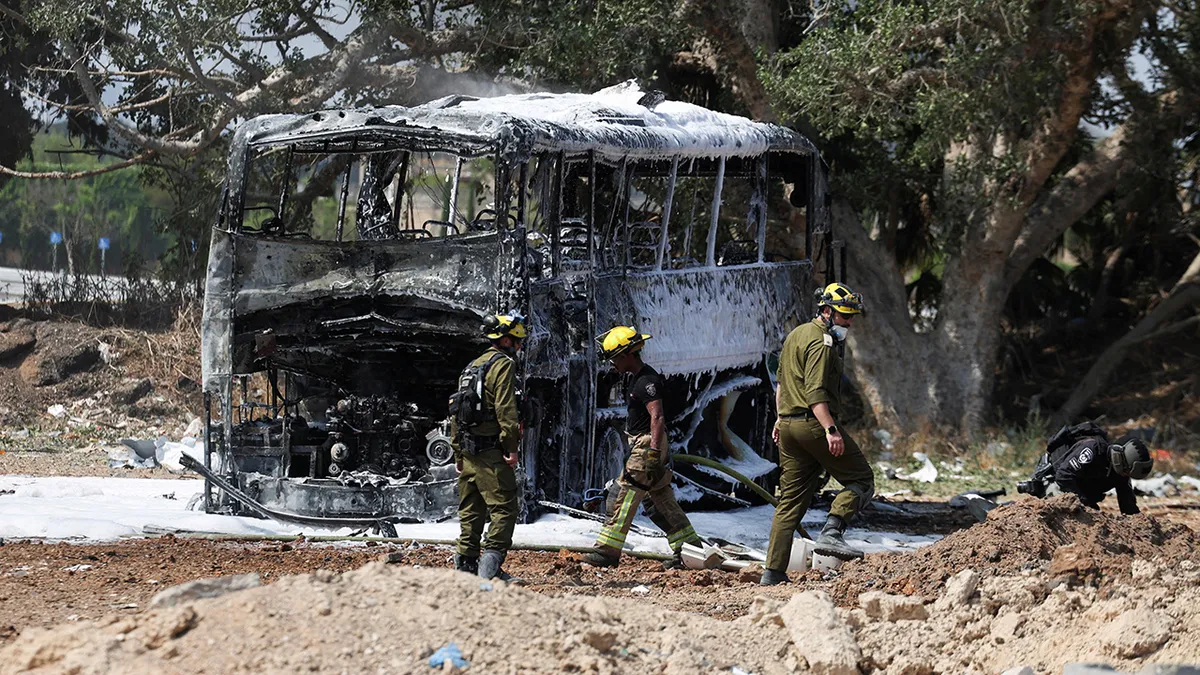
On Tuesday, President Donald Trump informed reporters that he would be in the Situation Room at the White House, as tensions escalate between Israel and Iran. When questioned about his early departure from the G7 summit in Canada, Trump remarked, “I don’t believe in telephones” and emphasized that being "on the scene is much better." He asserted that he had accomplished everything necessary at the G7, stating, “We had a good G7.”
In a related development, China's foreign ministry announced on Tuesday that Beijing is evacuating its citizens from both Israel and Iran amid the ongoing conflict. The ministry stated, “The Chinese Foreign Ministry and relevant embassies and consulates are working with other government agencies to do everything possible to keep Chinese nationals in Iran and Israel safe and swiftly organize their evacuation.” This announcement followed an update from the U.S. State Department, which raised its travel advisory for Israel to Level 4: Do Not Travel, citing armed conflict, terrorism, and civil unrest.
President Trump denied reports that his early departure was specifically to negotiate a cease-fire between Israel and Iran, suggesting instead that he was pursuing something "much bigger." During a conversation aboard Air Force One, he stated, “We’re looking at better than a cease-fire. I didn’t say that I was looking for a cease-fire.” When pressed for clarity, he replied, “An end. A real end, not ceasefire.” He added that total capitulation could also be an option.
Israeli Defense Minister Israel Katz issued a stark warning on Tuesday, likening Iran’s Supreme Leader, Ali Khamenei, to Iraq’s Saddam Hussein, suggesting that he could face a similar fate for committing war crimes against Israel. Katz stated, “I warn the Iranian dictator against continuing to commit war crimes and launching missiles at Israeli civilians.” He emphasized Israel's commitment to continue targeting Iranian military capabilities.
A security expert praised Israel's defensive capabilities, noting that the nation intercepted approximately 95% of Iranian ballistic missiles launched towards its territory. Dr. Yehoshua Kalisky from the Institute for National Security Studies highlighted the potential devastation of Iranian missiles, stating that the interception rate has significantly mitigated damage. On Monday, estimates indicated that about 20 out of 250-300 missiles had breached Israeli defenses, with five getting through on Tuesday, fortunately resulting in no fatalities.
Israeli President Isaac Herzog visited the site of an Iranian missile attack on the Weizmann Institute of Science in Rehovot. He remarked on the resilience of the institution, stating, “The noises you hear are of those coming to repair and rebuild and research and change the world for the better.” Herzog asserted that while Iran is attempting to sow chaos, Israel will continue to promote democracy and civil liberties.
Israeli Ambassador to the U.N. Danny Danon remarked that Israel is not looking to dictate U.S. actions in the conflict. He stated, “This is our war; we are fighting Iran.” Danon noted the disparity in size and military capability between Israel and Iran, emphasizing Israel's determination to defend itself despite being a smaller nation.
In Congress, Rep. Thomas Massie announced plans to introduce a bipartisan War Powers Resolution to prevent U.S. involvement in the Israel-Iran conflict. He underscored the need for congressional approval for any military engagement, while several other representatives expressed their support for this resolution.
The Israel Defense Forces released a video showing the successful targeting of an Iranian anti-aircraft crew attempting to strike an Israeli plane. IDF spokesperson Avichay Adraee confirmed that this was part of ongoing operations aimed at dismantling Iranian military capabilities.
In a statement responding to the G7 leaders' condemnation of Iran, Iranian Foreign Ministry spokesman Esmaeil Baqaei criticized the group for overlooking Israel's actions. Baqaei claimed that G7 nations must address what he termed “Israel's AGGRESSION,” highlighting the ongoing tensions and the complexities of the situation.
As President Trump arrived back in Washington, he reiterated his stance against negotiating with Iran, declaring, “I have no desire to negotiate with Iran. I expect nothing less than their complete surrender.” He criticized Iranian leadership for not taking previous deals seriously, suggesting that current talks are unlikely.
As the situation develops, the conflict between Israel and Iran continues to draw international attention, with significant implications for regional and global stability.